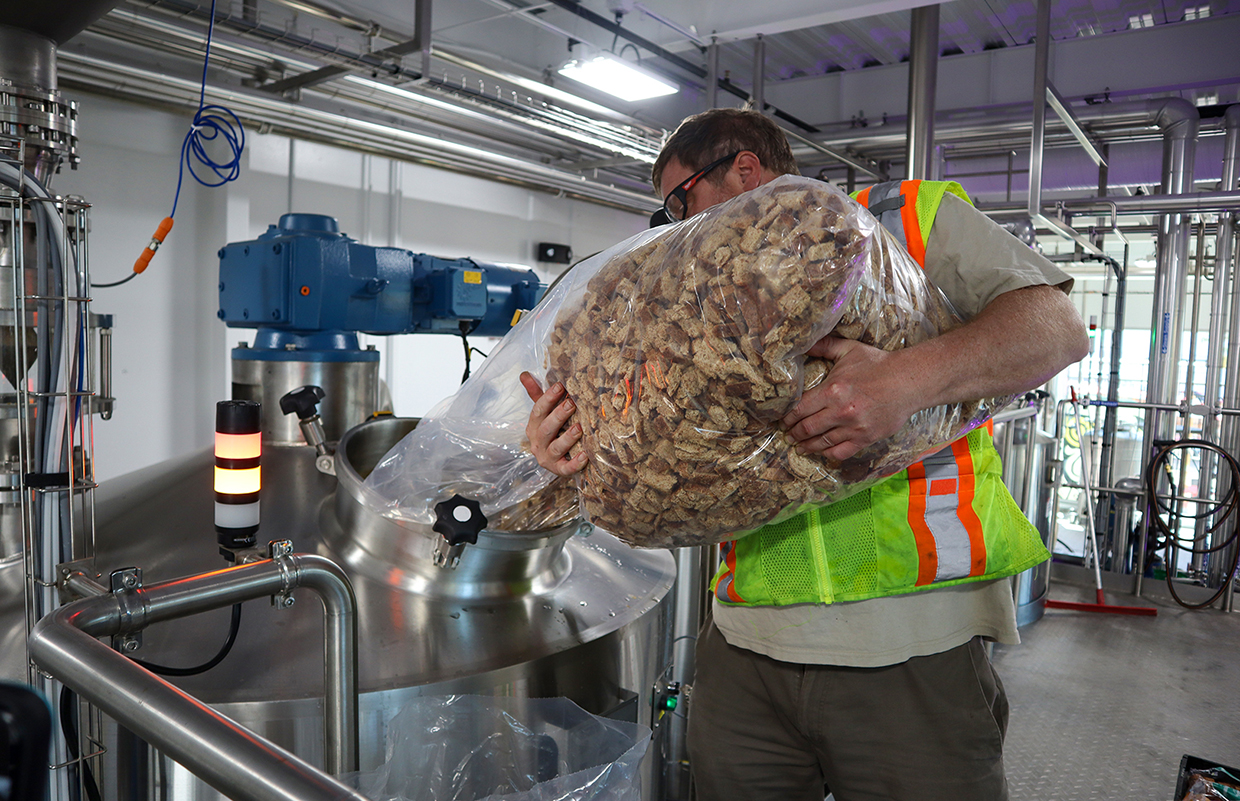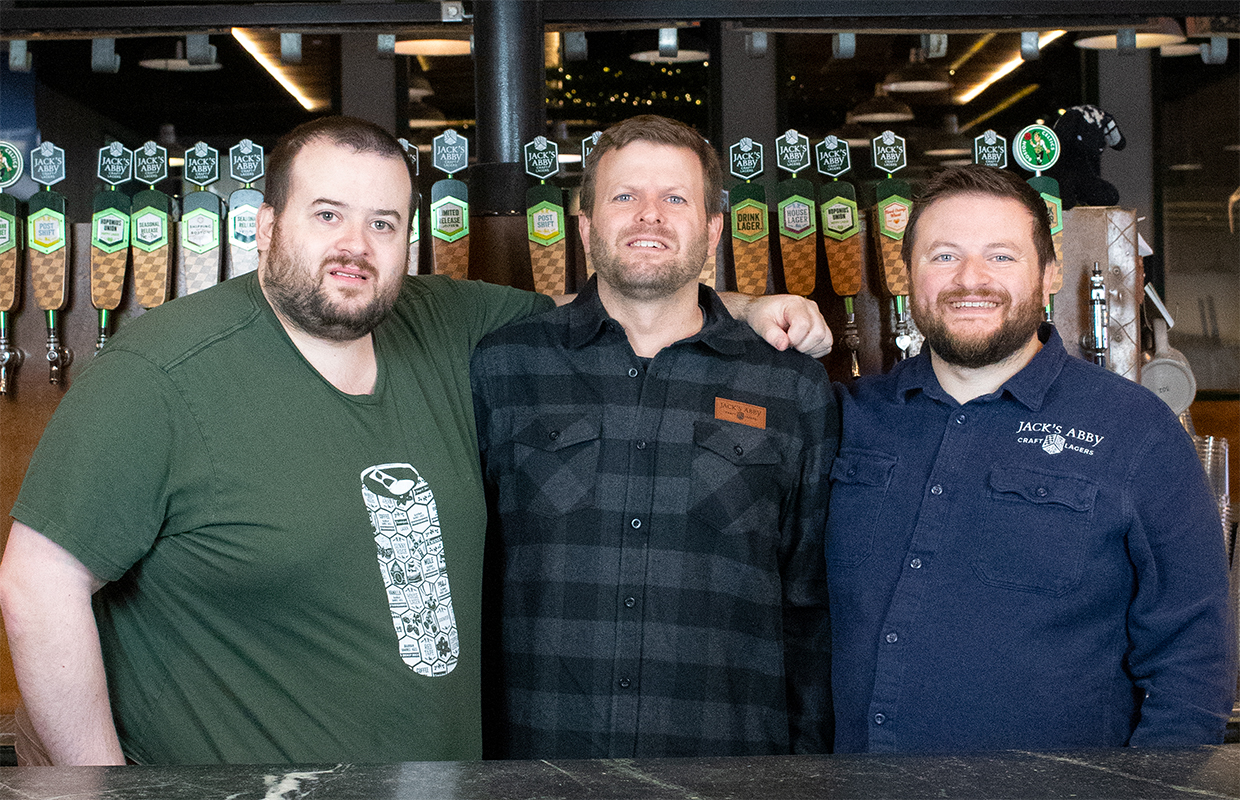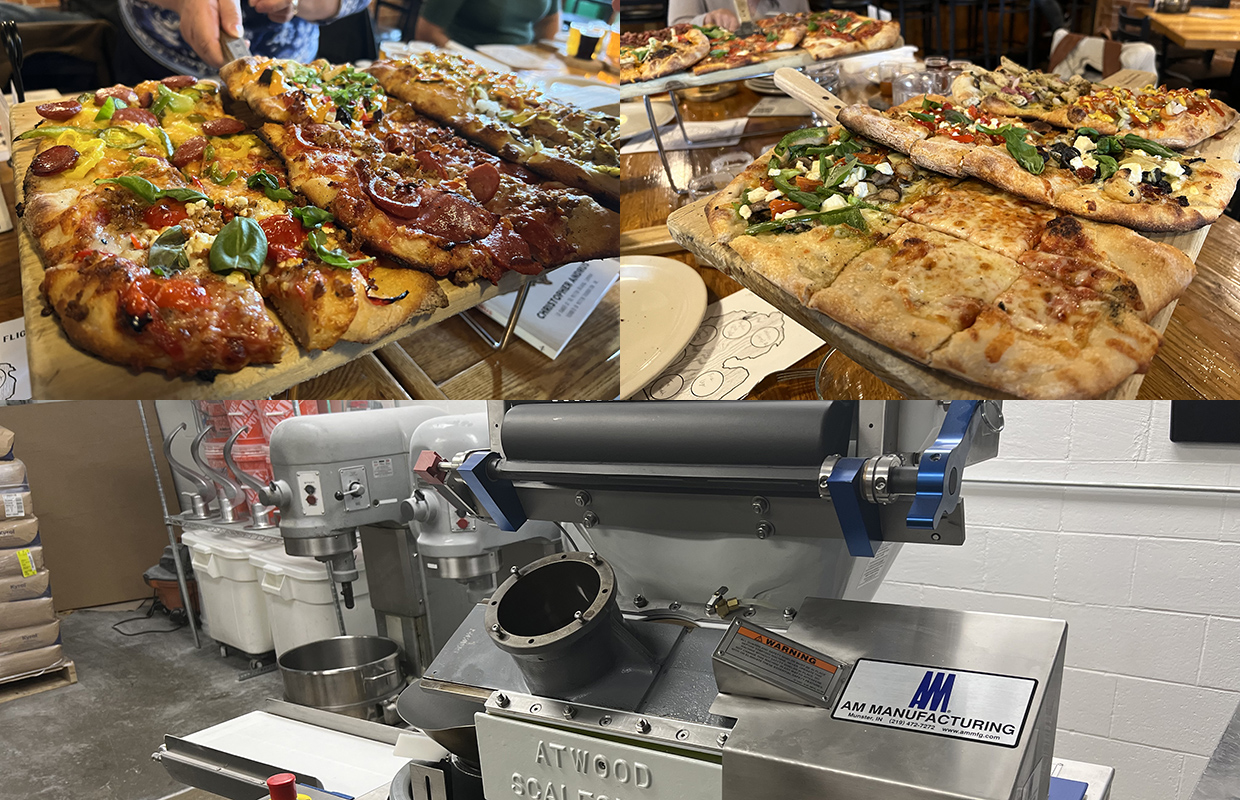
Presented with an idea to use bread instead of malted grain in a beer, Bryan Donaldson saw two ways to go with it.
The Brewing Innovation Manager for Lagunitas was tasked with using bread in a beer to show how upcycling can work in a beer. What would have been a waste of 80 loaves of sourdough could be used to make a delicious and sustainable product instead.
“We could try to use highly flavored bread to highlight those flavor profiles. Or, we could try to integrate the bread into the beer in such a way that it is not really there for the flavor profile,” Donaldson explained in the creation of The Toast of Petaluma, a California Common made with Nova, and dry-hopped with Loral and Citra. The low-ABV product was brewed using surplus imperfect loaves of sprouted sourdough from Alvarado St. Bakery. It was sold exclusively at the Lagunitas Petaluma Tap Room & Beer Sanctuary starting June 7.
“Both routes have their challenges, but we chose the second to test our mettle as brewers,” Donaldson said. “We wanted to make a very clean, delicious beer that you would not necessarily know had any bread in it. So, while our partners at Alvarado Street Bakery sent us a selection of loaves of bread, we chose to use the sprouted wheat sourdough exclusively for this beer.”
Any sour notes from the bread would work well in the beer since Donaldson said they often need to acidify during the process anyway. Also, the wheat sprouting process they utilize closely mimics the first steps of malting.
READ MORE: Perrin Releases Collab with Bread Company for Beer City Rye IPA
“We really appreciate that synergy,” he said. “From there, we just wanted to let it be the beer it wanted to be, so it went through the process as normal, from boil to fermentation to finishing.”
Making a beer with baked bread does pose some challenges that were a tad outside the norm.
“All we could do was replace 25% by weight,” Donaldson said. “We had no idea the extract potential of the bread, so we made an educated guess. We were given some guidance from Toast Ale (an English organization that makes beer brewed with surplus bakery bread) not to exceed 25% by weight or we could start running into problems — stuck mash/lauter, lack of conversion due to low enzymes, and such.
“We used a few brewers’ tricks to maximize extract and feel like we got about as much out of the bread as we could.”
The hardest part of the brew day was cutting up all the bread,” he said. The three members of the innovation team (Donaldson, Jeremy Marshall, and Mark Hughes) spent over two hours cutting all of the loaves into small cubes to aid the extraction process.
But overall, the brew day proceeded surprisingly normally.
“We were understandably cautious, but other than needing to do a few manual stirs on the mash to get the bread cubes all hydrated, there was nothing unusual about the brew, other than the appearance,” Donaldson said. “Seeing pieces of dark bread crust on the surface of the lauter bed was a bit odd… We were also worried about having a crashed lauter but keeping really hot sparge water and reasonable flow rates kept anything bad from happening.”
In honor of this initiative, Lagunitas made a donation to Sonoma Family Meal to feed 200 food-insecure people in the community and support this nonprofit that envisions an equitable, sustainable, and resilient food ecosystem.






Be the first to comment